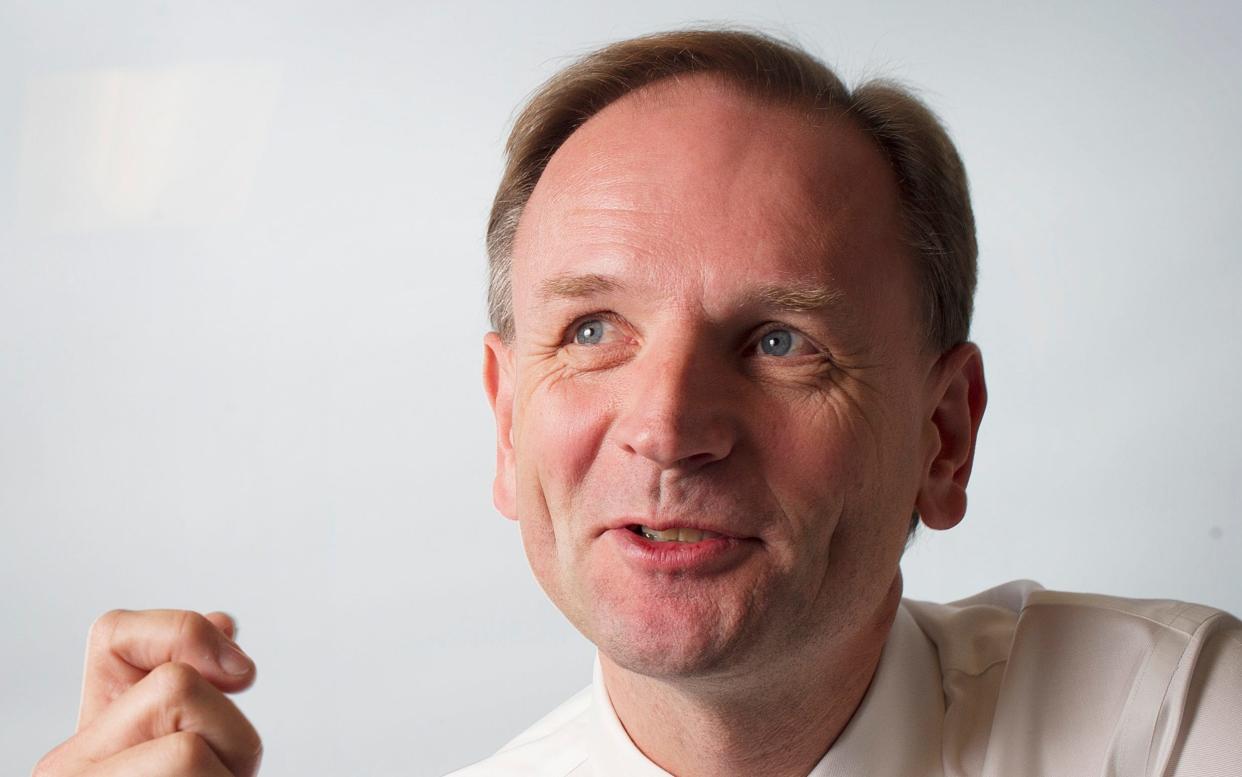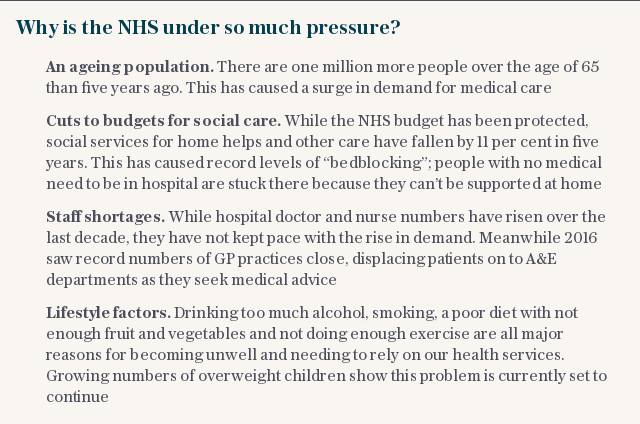£2.8bn cash boost for NHS is not enough complain hospital chiefs

The NHS will get a £2.8bn cash boost from the Chancellor - but health chiefs said it is not enough to avoid “difficult” decisions and longer waiting times.
The package - aimed at hospitals - includes an immediate £350m injection to tide the health service through this winter - the same sum which was promised per week on the Brexit bus.
Last night health chiefs expressed disappointment, saying they will meet next week to begin “difficult” decisions about what services can be delivered.
Folllowing repeated pleas from the NHS for extra money, Philip Hammond said he had taken the “exceptional” decision to inject extra funding, above previous plans.
The investment will see an extra £350m in revenue funds this winter, followed by £1.6bn more in 2018/19 and £0.9bn in 19/20. In addition, £3.5bn has been set aside for capital investment, to modernise services and tackle a repairs backlog.
However, the £1.6bn revenue boost for next year falls short of the £4bn demanded by health chiefs, who had said waiting lists could reach 5 million without such investment.
Last night Sir Bruce Keogh, NHS medical director, described the situation as “worrying”.
The chairman of NHS England said the funds would “go some way towards filling the widely accepted funding gap” but signalled future cuts.
Sir Malcolm Grant said: "We can no longer avoid the difficult debate about what it is possible to deliver for patients with the money available” and said the board of NHS England would lead discussions next week.
Sir Bruce, who will retire from position at the end of this year, said his personal view was that the boost was insufficient to plug a funding gap. He tweeted: "Will force a debate about what the public can and can't expect from the NHS. Worrying that longer waits seem likely/unavoidable."
The Chancellor also committed to fund pay awards for nurses, midwives and paramedics.
But he said the deal was conditional on reform of the current system, which gives automatic rises linked to length of service.
The King’s Fund said the money was a “welcome shot in the arm” but less than the £4bn needed next year. Richard Murray, director of policy, said: “Even with this additional funding, the service will struggle to meet key targets and provide the investment needed in services such as general practice and mental health.
The extra funds are one-off payments, which are non-cumulative, meaning funding could fall again in future.
Chris Hopson, chief executive of NHS Providers, which represents hospitals, said the sums were “disappointing” and called for a longer term funding plan.
"Tough choices are now needed and trade offs will have to be made,” he said, though he said any extra investment was welcome.

Nuffield Trust chief executive Nigel Edwards said: "As we and two other leading think tanks calculated, the figure really needed next year to get the NHS on a permanently stable footing would have been at least £4bn.
"Today's pledges fill about half of this.
"The new money levels off fast: the year after next, the NHS will again face limited additional funding, and we may find ourselves staring down the barrel once again."
Rachel Power, chief executive of the Patients Association, said: "This level of funding will not halt the slide in NHS performance, in which patients are waiting longer for surgery, being treated on trolleys in corridors, and increasingly being threatened with having to leave their homes just to receive day-to-day care."
Think tanks also highlighted a “deafening silence” on social care, which has seen funding fall in recent years.
The Local Government Association said the lack of extra funds was “hugely disappointing”.

 Yahoo News
Yahoo News 
